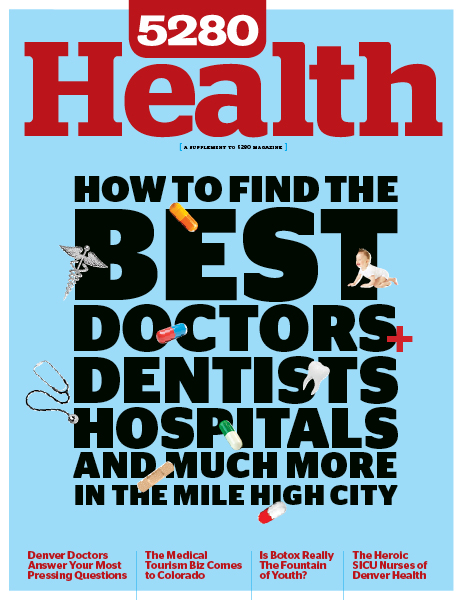The Local newsletter is your free, daily guide to life in Colorado. For locals, by locals.
There are a variety of touchy subjects that people traditionally avoid at social gatherings: money, religion, sex, abortion, politics. You know, the kinds of topics that inevitably prompt everyone, at one time or another, to put a foot in their mouth. These days, though, there’s another hot-button topic many people say they steer clear of at parties: childhood vaccines.
“Women are telling us that they don’t bring up vaccinations at baby showers,” says Lydia McCoy, executive director of the Colorado Children’s Immunization Coalition (CCIC). “They feel uncomfortable telling other moms that they got their children vaccinated.” Which is odd, considering more than 80 percent of Colorado infants are, in fact, vaccinated against everything from measles to mumps to whooping cough. But the reality is that vaccinating children has been a controversial issue since 1998, when a now-discredited study implied that the measles-mumps-rubella vaccine might have a connection to autism. Since that paper was released, thousands of parents of autistic children—including vocal celebrities like Jenny McCarthy—have united and created a loud push against vaccinations.
It is this crusade—along with the normal parental hesitancy to inflict the sting of a needle on a child—that the Colorado Department of Public Health and Environment, in partnership with the CCIC, hopes to counteract with Immunize For Good. The statewide campaign looks to empower parents to feel confident about vaccinating their kids. Colorado has yo-yoed over the years with its vaccination rates: As recently as 2003, Colorado’s rates were the worst in the country; in 2008, after a concerted effort by the state, they had jumped to ninth. But it’s an unending battle to keep those rates healthy. “We need to give parents a place to get good information about immunizations,” says Joni Reynolds, the immunization program director at the Colorado Department of Public Health and Environment. “We understand that taking your child to get a shot is stressful enough without having reservations about safety.” Reynolds hopes the place for parents to go will be Immunizeforgood.com, a clearinghouse for understandable, approachable, science-based information about vaccines. “This isn’t about getting into the autism debate,” says Christina Schroeder, whose brand communications agency, Rabble and Rouser, has helped mold the campaign. “This campaign is about counteracting incorrect information and stemming the fear of vaccines.”
Starting in early 2011, Coloradans will begin seeing billboards, hearing radio spots, and finding links to multimedia for the Immunize For Good movement. They’ll also be able to get Immunize For Good information from their primary care physicians. “Vaccines are a victim of their own success,” says Katie Trexler Kern of Kirshner Communications, which runs media relations for the campaign. “Americans don’t see the diseases they prevent anymore; it’s out of sight and out of mind. We need to make sure Coloradans continue to vaccinate their kids.”
For more information, visit www.immunizeforgood.com.
Rash of Disease
Recent outbreaks in Colorado illustrate the importance of being vaccinated.
Disease: meningococcal disease (meningitis)
Outbreak Location: Denver and Fort Collins
Date of Outbreak: April to October 2010
People Infected: 7
Deaths: 5
Disease: pertussis (whooping cough)
Outbreak Location: statewide (the state averages 232 cases a year)
Date of Outbreak: January through October 2010
People Infected: 220
Deaths: 0 (the last death from pertussis was in 2005)
Disease: invasive pneumococcal disease
Outbreak Location: statewide
Date of Outbreak: 2009
People Infected: 623
Deaths: 52








